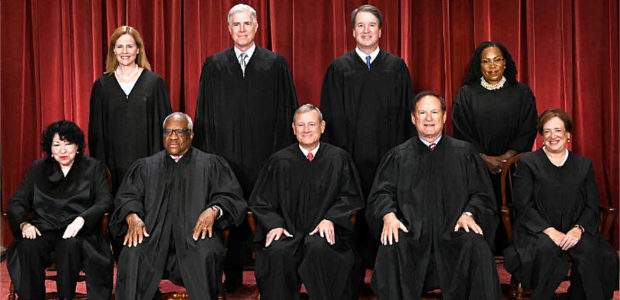


The Supreme Court just issued a massive ruling about federal government power and authority when it comes to interpreting Congressional statutes.
The case at issue is one nicknamed ‘Chevron’, because it’s a ruling from the 1980s that suggested courts have to defer to federal agencies regarding their interpretation of these statutes.
As Justice Roberts summarizes:
Under the Chevron doctrine, courts have sometimes been required to defer to “permissible” agency interpretations of the statutes those agencies administer—even when a reviewing court reads the statute differently.
Roberts then concludes that this is wrong and overrules Chevron:
Held: The Administrative Procedure Act requires courts to exercise their independent judgment in deciding whether an agency has acted within its statutory authority, and courts may not defer to an agency interpretation of the law simply because a statute is ambiguous; Chevron is overruled.
In the words of The Hill, “The Supreme Court takes a sledgehammer to federal agency power in the Chevron case.”
This means, according to Jonathan Turley, that there will be many more lawsuits against the government and that people in Washington are about to collectively get a case of ‘the vapors’.
The ruling was the typical 6-3, with Kagan, Sotomayor and Jackson dissenting.
ROBERTS, C. J., delivered the opinion of the Court, in which THOMAS, ALITO, GORSUCH, KAVANAUGH, and BARRETT, JJ., joined. THOMAS, J., and GORSUCH, J., filed concurring opinions. KAGAN, J., filed a dissenting opinion, in which SOTOMAYOR, J., joined, and in which JACKSON, J., joined…
You can read the full decision below:
 Loading...
Loading...


 Reload document
Reload document  Open in new tab
Open in new tab